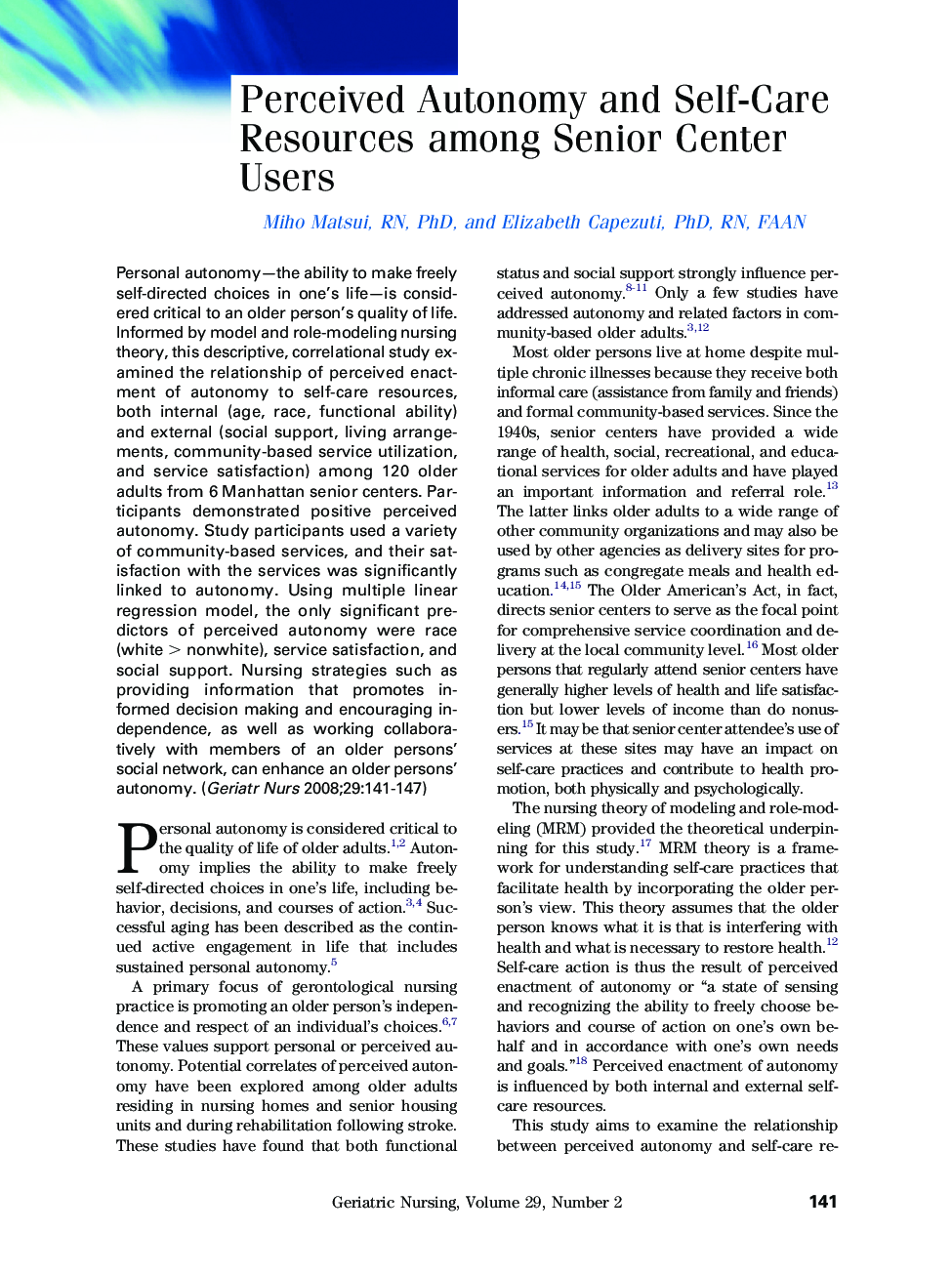| Article ID | Journal | Published Year | Pages | File Type |
|---|---|---|---|---|
| 2651261 | Geriatric Nursing | 2008 | 7 Pages |
Personal autonomy—the ability to make freely self-directed choices in one’s life—is considered critical to an older person’s quality of life. Informed by model and role-modeling nursing theory, this descriptive, correlational study examined the relationship of perceived enactment of autonomy to self-care resources, both internal (age, race, functional ability) and external (social support, living arrangements, community-based service utilization, and service satisfaction) among 120 older adults from 6 Manhattan senior centers. Participants demonstrated positive perceived autonomy. Study participants used a variety of community-based services, and their satisfaction with the services was significantly linked to autonomy. Using multiple linear regression model, the only significant predictors of perceived autonomy were race (white > nonwhite), service satisfaction, and social support. Nursing strategies such as providing information that promotes informed decision making and encouraging independence, as well as working collaboratively with members of an older persons’ social network, can enhance an older persons’ autonomy.
